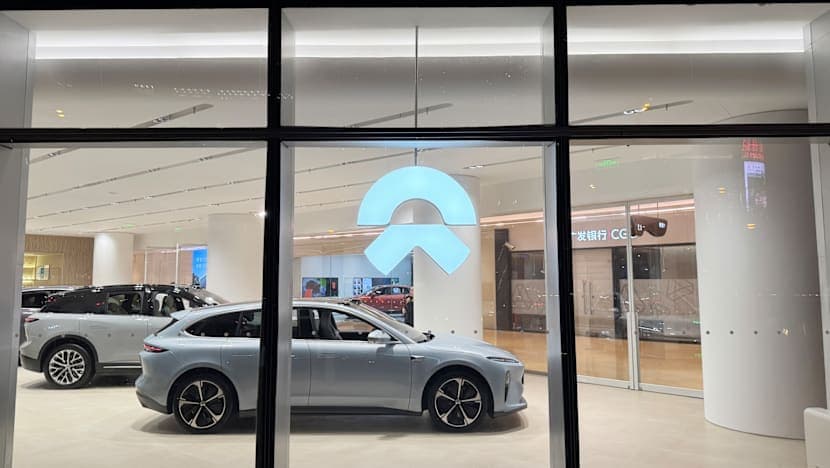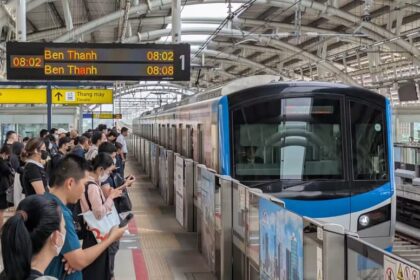Why Nio Faces a Sovereign Investor in Court
Singapore’s sovereign wealth fund GIC has taken the rare step of suing Nio, the Chinese electric vehicle maker, in a United States court, alleging that the company inflated revenue and misled investors through its battery leasing structure. The complaint focuses on an affiliate called Nio Battery Asset Co., known as Weineng, that allegedly allowed Nio to book sales before cash arrived from customers. News of the filing hit investor confidence. In Hong Kong, Nio’s shares fell as much as about 13 percent on Thursday, while in Singapore the stock slid close to 10 percent during the session. The drop erased billions from the company’s market value and added pressure to an automaker that has yet to post an annual profit.
The lawsuit, filed in August in the US District Court for the Southern District of New York, names Nio Inc., its co founder and chief executive William Li, and former chief financial officer Feng Wei as defendants. GIC alleges that Nio issued false statements and withheld key information about its relationship with Weineng and about the timing and nature of revenue from the battery program. The complaint says those misstatements artificially inflated the value of Nio’s securities and led to investor losses when the truth emerged.
GIC manages one of the world’s largest pools of capital and is a long horizon investor in technology, infrastructure, and other sectors. Nio, listed in the US since 2018, built its brand around premium electric cars and a network of battery swap stations. Through Battery as a Service (BaaS), customers can buy a car without the battery and pay a monthly fee to access Nio’s swap network. Batteries are a major cost component of an electric car, often 30 to 40 percent of the vehicle’s price, and the subscription model aims to lower the upfront price for buyers.
What the Lawsuit Alleges
At the heart of the case is an accounting issue tied to the battery leasing program. GIC says Weineng bought batteries from Nio upfront, which let Nio recognize full sales revenue immediately even though drivers were paying for battery access over many months through subscriptions. The fund argues that the income should have been recognized gradually, not all at once, and that Nio failed to fully disclose the extent of its control over Weineng. GIC calls the sales to Weineng a transfer to an entity that was not truly independent of Nio.
In the court filing, GIC describes the effect on investors in stark terms. The complaint states that the defendants issued misleading statements about the affiliate and the timing of revenue, which pushed up Nio’s share price and later magnified losses.
GIC’s complaint says the defendants’ statements artificially inflated the value of Nio’s securities, and when the truth emerged, Nio’s securities plunged, causing GIC to suffer tremendous losses.
The suit claims Nio unlawfully recognized immediate revenue exceeding 600 million dollars related to the battery asset and leasing joint venture. It asserts that Weineng was created to help Nio pull forward revenue from leased batteries and to move depreciation and financing costs off Nio’s balance sheet. GIC says Nio held a controlling financial interest and was the primary beneficiary of Weineng, which meant the affiliate should have been consolidated into Nio’s financial statements. The filing lists 14 instances of what it calls materially false or misleading statements from August 2020 to June 2022 and references regulator questions about Weineng’s status.
How Nio’s Battery Subscription Model Works
Nio operates a network of battery swap stations that allow drivers to replace a depleted pack in a few minutes. The company offers Battery as a Service (BaaS), which lets buyers purchase a vehicle without the battery and pay a recurring fee for battery access. This lowers the vehicle’s initial price and spreads battery cost over time. The model requires large investments in stations and a sizable pool of batteries to meet demand. To support BaaS, Nio and partners created a dedicated entity for battery assets called Nio Battery Asset Co., commonly referred to as Weineng and also known as Mirattery.
Upfront sales or subscription revenue
The core question is simple to state even if it is technical to resolve. If a manufacturer sells batteries to an affiliate while end customers pay for battery access monthly, when should the manufacturer recognize revenue? GIC argues that Nio booked too much revenue too early by recording the full battery sale on day one, when the economic reality was that cash would be received over time from subscriptions. The fund says this boosted reported sales and margins in the short term and gave investors a stronger picture during 2020 and 2021, when the stock price climbed above 60 dollars.
Who controls Weineng
Another central issue is control. Under US accounting rules, a company must consolidate another entity if it is the primary beneficiary of a variable interest entity. That determination focuses on who has power over key activities and who absorbs most of the risks and returns. GIC claims Nio funded, directed, and economically controlled Weineng, so Nio should have consolidated Weineng’s financial results. If consolidation were required, sales between Nio and the affiliate would be eliminated in the combined accounts, and revenue would instead be recognized as end customers make payments. Weineng was formed in August 2020 with partners including battery giant CATL, Guotai Junan, and Hubei Science Technology Investment, but the complaint argues that the affiliate did not operate with true autonomy.
Timeline and Trigger Events
Before the affiliate was formed, Nio struggled with liquidity. Providing battery swapping and rentals tied up cash in batteries and station infrastructure. In August 2020, Nio and several partners created Weineng to own the battery assets and manage leases. After that change, Nio reported a sharp jump in late 2020 revenue, which critics say was fueled by upfront recognition of battery sales to Weineng.
In June 2022, a short seller report accused Nio of using its battery asset company to exaggerate revenue and margins. Nio rejected the claims and announced an independent committee to examine the issues. Court documents say the US Securities and Exchange Commission later requested information on whether Weineng should be treated as a variable interest entity.
GIC says it purchased more than 54 million American depositary shares between August 2020 and July 2022, a period that included Nio’s rapid rise and subsequent slide. The fund alleges that it suffered material losses when doubts about the accounting surfaced and the share price weakened.
GIC filed its complaint in August in the Southern District of New York and asked for a jury trial. As of October 3, a judge stayed the case in favor of an earlier class action filed by investors in 2022, which raises similar questions about revenue recognition and control of Weineng. While the stay is in place, Nio is not required to respond to GIC’s complaint.
Market Reaction and Financial Stakes
Nio’s shares tumbled after the lawsuit became public. In Hong Kong trading the stock fell as much as about 13 percent before trimming some losses, and in Singapore it was down close to 10 percent during the day. At the session low near 6 dollars on the Singapore Exchange, the decline wiped about 2.4 billion dollars from Nio’s market capitalization, according to price and volume data for the session.
The setback comes at a difficult time for the automaker. Nio has not reported a full year profit since it was founded in 2014. In the second quarter of 2025, the company reported revenue of 19 billion yuan and a net loss of 5 billion yuan, while vehicle deliveries rose to 72,056, which was an increase of more than 25 percent year on year. Nio also raised about 1 billion dollars recently through a share sale to support new models and expand production capacity.
Nio’s US listed shares surged during 2020 and reached above 60 dollars in January 2021, then gave back most of those gains as losses persisted and competition intensified. As of October, the stock trades in the mid single digits. The market’s response to the lawsuit underscores how sensitive valuations are to trust in financial reporting and to the credibility of asset heavy subscription models.
Where the Case Stands Now
The stay means the court will first address the earlier consolidated class action from 2022 that challenges Nio’s handling of battery revenue and its relationship with Weineng. If that case moves forward, it is likely to tackle the same accounting questions at the center of GIC’s suit, including whether sales to the affiliate should have been recognized over time and whether Weineng should have been consolidated.
GIC seeks compensation for losses it attributes to purchasing shares at prices inflated by alleged misstatements, as well as reimbursement of legal costs. Securities litigation often spans years and involves motions to dismiss, discovery, expert analysis, and possible settlement talks. If the case proceeds to trial, both sides will rely on accounting and industry experts to explain the battery leasing structure and the revenue recognition rules to a jury.
What Nio and GIC Say
GIC has declined to comment on the suit beyond the filing. Nio has not issued a detailed response to the new complaint while the case is stayed. In 2022, after outside critics raised similar claims, the company said it completed an internal review overseen by an independent committee and concluded that the allegations were unsubstantiated. Nio continues to promote its battery swap network and is working to contain costs while developing new models, even as the company faces intense competition and persistent losses.
Why It Matters for EV Investors
This dispute highlights the financial complexity behind fast growing electric vehicle businesses that lean on subscriptions, leasing, and affiliates to scale. Accounting treatments can shift the timing of revenue and earnings, which in turn influences fundraising and investor sentiment. If a court were to find that revenue was recognized too early or that an affiliate should have been consolidated, the company might need to reevaluate how it presents its business economics to investors.
Battery swap aims to reduce charging time and ease range concerns. Making it work requires heavy investment in stations and a deep pool of batteries that can be rotated across vehicles. That capital burden is one reason some automakers move assets into joint ventures or separate vehicles with outside partners. Investors watching similar models will be attentive to how judges interpret control, performance obligations, and related party transactions in this case.
For Nio, the litigation adds to execution challenges in a crowded market where price competition has tightened margins. The outcome could affect the cost of capital and the pace of expansion. It could also shape how other companies structure battery subscription programs and how investors evaluate related party transactions in the sector.
At a Glance
- GIC sued Nio, CEO William Li, and former CFO Feng Wei in the Southern District of New York in August, alleging inflated revenue through the Weineng affiliate.
- The complaint says Nio recognized more than 600 million dollars of battery sales revenue upfront that should have been recorded over time.
- GIC claims Nio controlled Weineng and should have consolidated the affiliate’s results in its financial statements.
- Nio shares dropped as much as about 13 percent in Hong Kong and nearly 10 percent in Singapore after the case came to light.
- A judge stayed the case on October 3 pending an earlier investor class action with overlapping claims.
- GIC says it bought more than 54 million American depositary shares between August 2020 and July 2022 and seeks damages and legal costs.
- Nio has yet to post a profit since 2014; in the second quarter of 2025 it reported 19 billion yuan in revenue and a net loss of 5 billion yuan with 72,056 deliveries.
- Nio recently raised about 1 billion dollars through a share sale to support new models and production capacity.












